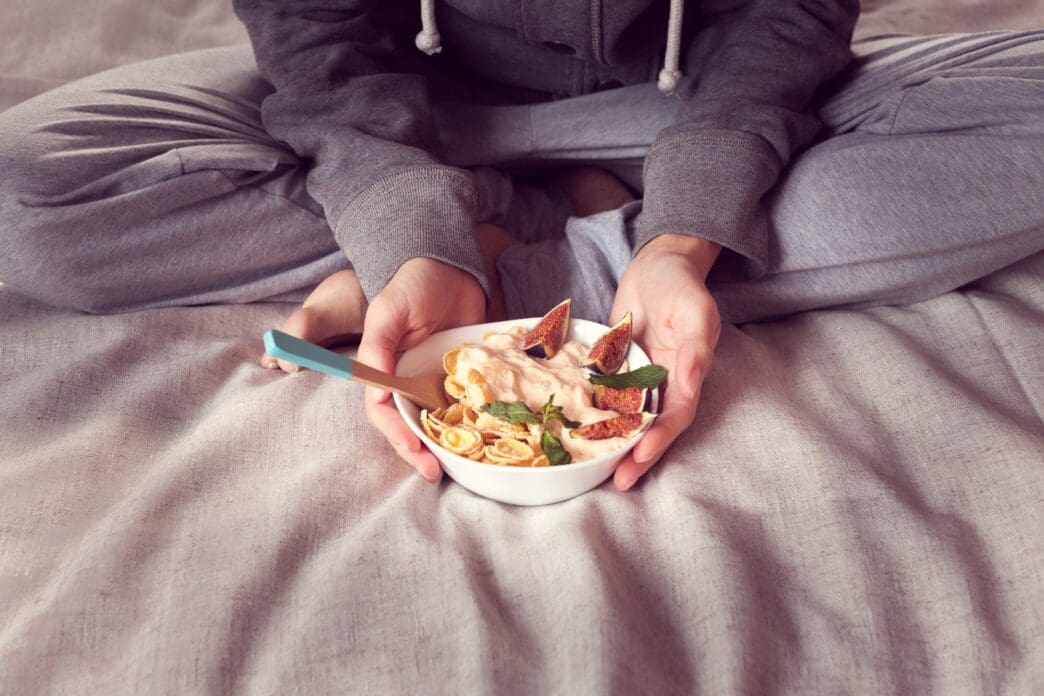A Quick Takeaway
The Story Behind the Trend
How to Make It Work for You
The Community View
Achieving consistent, quality sleep is fundamental to our overall health and vitality, and what we eat—and when—plays a surprisingly significant role in this nightly ritual. For anyone struggling with restless nights or seeking to optimize their sleep, understanding the specific foods that promote relaxation and those that disrupt it can be a game-changer. By making informed dietary choices, individuals can naturally enhance their body’s ability to wind down, fall asleep faster, and enjoy deeper, more restorative rest, thereby improving energy levels, mood, and cognitive function throughout the day.
The Science Behind Food and Sleep
Our bodies are complex systems, and the food we consume provides the building blocks and signals that regulate countless processes, including the sleep-wake cycle. Key neurotransmitters like serotonin, which is a precursor to the sleep hormone melatonin, are synthesized from amino acids found in food. Additionally, certain minerals and vitamins act as cofactors in these biochemical pathways, while digestive comfort or discomfort can directly impact our ability to relax and drift off.
Best Foods for a Restful Night
Incorporating specific nutrient-dense foods into your evening routine can support your body’s natural sleep mechanisms. These foods often contain compounds that promote relaxation, aid in melatonin production, or stabilize blood sugar.
Tryptophan-Rich Foods
Tryptophan is an essential amino acid that the body converts into serotonin, which then becomes melatonin. Foods like turkey, chicken, eggs, cheese, nuts (almonds, cashews), and seeds (pumpkin, sesame) are excellent sources. Consuming these in moderation, particularly with a small amount of complex carbohydrates, can help facilitate this conversion.
Magnesium-Rich Foods
Magnesium is a mineral known for its muscle-relaxing and stress-reducing properties, often dubbed the “relaxation mineral.” A deficiency can contribute to restless sleep. Incorporate foods such as leafy green vegetables (spinach, kale), nuts (almonds, cashews), seeds (pumpkin, chia), legumes, whole grains, and avocados into your diet.
Complex Carbohydrates
Unlike simple sugars, complex carbohydrates promote a steady release of insulin, which helps tryptophan cross the blood-brain barrier more effectively. Opt for foods like oats, whole-grain bread, sweet potatoes, and brown rice in your evening meal. A small bowl of oatmeal or a piece of whole-grain toast can be a good bedtime snack.
Melatonin-Containing Foods
While the body produces melatonin, some foods contain it naturally, potentially supplementing your internal supply. Tart cherries (and their juice), walnuts, and goji berries are notable examples. A small glass of tart cherry juice before bed has been shown in some studies to improve sleep quality.
Omega-3 Fatty Acids
Found abundantly in fatty fish like salmon, mackerel, and sardines, omega-3 fatty acids are important for brain health and can reduce inflammation. Some research suggests they may also play a role in regulating melatonin production and improving sleep quality. Aim for two servings of fatty fish per week.
Herbal Teas
Certain herbal teas have long been used as natural sleep aids due to their calming properties. Chamomile tea contains apigenin, an antioxidant that binds to specific receptors in the brain to decrease anxiety and initiate sleep. Other beneficial options include valerian root, passionflower, and lemon balm teas.
Foods to Avoid for Better Sleep
Just as some foods promote sleep, others can actively interfere with it. Being mindful of these potential disruptors, especially in the hours leading up to bedtime, is crucial for improving sleep hygiene.
Caffeine
Caffeine is a stimulant that blocks adenosine, a neurotransmitter that promotes sleep. Found in coffee, tea, soda, energy drinks, and even chocolate, its effects can last for many hours due to its long half-life. It’s generally recommended to avoid caffeine at least 6-8 hours before bed.
Alcohol
While alcohol may initially make you feel drowsy, it significantly disrupts the sleep cycle, particularly REM sleep. It can lead to fragmented sleep, frequent awakenings, and a less restorative night. Limit alcohol consumption, especially in the late evening.
Heavy, Fatty, or Spicy Foods
Eating large, heavy meals, particularly those high in fat or spice, too close to bedtime can burden your digestive system. This can lead to indigestion, heartburn, and general discomfort, making it difficult to fall asleep and stay asleep comfortably. Aim to finish your last substantial meal at least 2-3 hours before bed.
Sugary Foods and Refined Carbohydrates
Foods high in sugar and refined carbohydrates (like white bread, pastries, and candy) can cause rapid spikes and subsequent crashes in blood sugar. These fluctuations can trigger a stress response in the body, releasing hormones like cortisol and adrenaline, which can lead to restlessness and difficulty sleeping.
High-Protein Meals Before Bed
While protein is essential, very large, protein-heavy meals right before bed can be more challenging for the body to digest. This can divert energy to digestion when your body should be preparing for rest. Opt for smaller, balanced meals or snacks if you need to eat close to bedtime.
Timing and Portions Matter
Beyond specific food choices, when and how much you eat are equally important. Eating a large meal too close to bedtime can lead to indigestion and discomfort, regardless of the food type. Aim to have your last substantial meal 2-3 hours before you plan to sleep. If you need a snack closer to bedtime, choose something small and easily digestible from the “best foods” list.
Nourishing Your Way to Better Sleep
The connection between our diet and sleep quality is undeniable and profound. By thoughtfully incorporating sleep-promoting foods into our daily routine and consciously avoiding those that disrupt rest, we can significantly enhance our ability to achieve deep, restorative sleep. This conscious approach to nutrition not only supports better sleep but also contributes to improved energy, mood, and overall well-being, paving the way for a healthier, more vibrant life.







